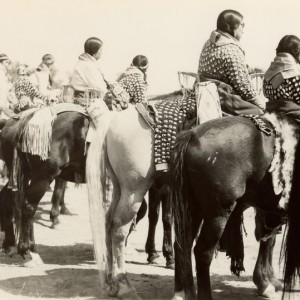10 Famous Native Americans in History
Here are the 10 famous Native Americans in history who fought against all odds for the rights of their people. Some flourished in the new society, some enabled them to survive despite the onslaught of the new Americans on their land and their peoples. Some are tragic figures and succumbed despite all their efforts to fight for the survival of their peoples.
flourished in the new society, some enabled them to survive despite the onslaught of the new Americans on their land and their peoples. Some are tragic figures and succumbed despite all their efforts to fight for the survival of their peoples.
- Red Cloud1822-1909
Red Cloud was a capable warrior from Oglala Lakota (Sioux) tribe who faced the US military. His Sioux name Makhpiya Luta led his people in the Red Cloud War. The Red Cloud War was for the area rights for the Powder River Country in Southern Montana and Northern Wyoming.
- Cochise1815-1874
Cochise was an Apache leader second to Geronimo when it comes to the tribe’s historical significance. Many speak of his regal appearance: his classical large and muscular Indian frame. He helped with the uprising to resist the intrusions of Americans and Mexicans in the 19th century.
- Maria TallChief1925-TBA
Born to an Osage Nation father, Elizabeth Maria Tall Chief became a well-known ballerina. She began dancing in 1947 with the New York City Ballet until she retired in 1965. From there she founded the Chicago City Ballet and was, for many years, the artistic director.
Since 1997 she became an advisor in Chicago dance schools and despite her age continued to amaze future dancers with her unique and extraordinary talent.
- Squanto 1581-1622
Patuxet, Tasquantum (Squanto) befriended and assisted Pilgrims during their first harsh winter so they could make it through to the spring. Kidnapped in 1608 by George Weymouth, Squanto was taken back to England. Although he learnt English and made a living Squanto returned this home in 1613 on board John Smiths ship to find that a plague had completely wiped out his tribe.
- Sacajawea1788-1812
Sacajawea is well known for helping William Clark and Meriwether Lewis during the 1806 Corps of Discovery of Western United States. In 1788, she was born as Agaidika or Salmon eater in the Shoshone tribe. In 1805 after Lewis and Clark first met Sacajawea, Lewis helped assist her son’s birth. Her sons name was Jean Baptiste Charbonneau. She now appears on the dollar coin.
- Pontiac1720-1769
Known as Obwandiyag in his Ottawa tongue, Chief Pontiac is well known for the US Great Lakes Region defence against the British Troop occupation and invasion. Pontiac in 1763 and over 300 followers attempted to take Fort Detroit by surprise. They eventually took the Fort at The Battle of Bloody Run after the revolt increased to over 900 natives. In 1769 it was said that he was assassinated in Illinois by a Peoria Indian.
- Geronimo1829-1909
Geronimo was a well-known Chiricahua Apache Native American leader who was able to defend his tribe against the intrusion of the US military of their land for over 25 years. Geronimo was a military leader and a spiritual leader. Over the years he continued to urge war and raids upon many US groups and Mexicans. Eventually Geronimo married 6 wives which was an Apache tradition. He eventually staged the last great Native American uprising and then was moved to a reservation, where he lived out his years.
- Sitting Bull1831-1890
Sitting Bull was a holy man and a Hunkpapa Lakota medicine man. He is famous in Native American and American history for his victory against Custer and the Battle of Little Bighorn. He is considered one of the most famous Native American heroes.
- Black Hawk1767-1838
Black Hawk was known as a War Chief. During the 1812 War, Black Hawk became a very powerful and fierce opponent. He first fought with the British before leading a band of Fox and Sauk against Illinois and Wisconsin settlers. He died in Iowa.
- Pocahontas1595-1617
Native American woman Pocahontas married an Englishman called John Rolfe. In the last year of her life she became a London celebrity. Daughter of Wahunsunacock, Pocahontas came from a tribe in Virginia. Here formal names were Amounute and Matoaka with Pocahontas being her nickname which was used in her childhood in reference to her frolicsome nature. In her last days she went by the name of Rebecca Rolfe. Pocahontas chose to live life in England and abandoned her Native American heritage.




















